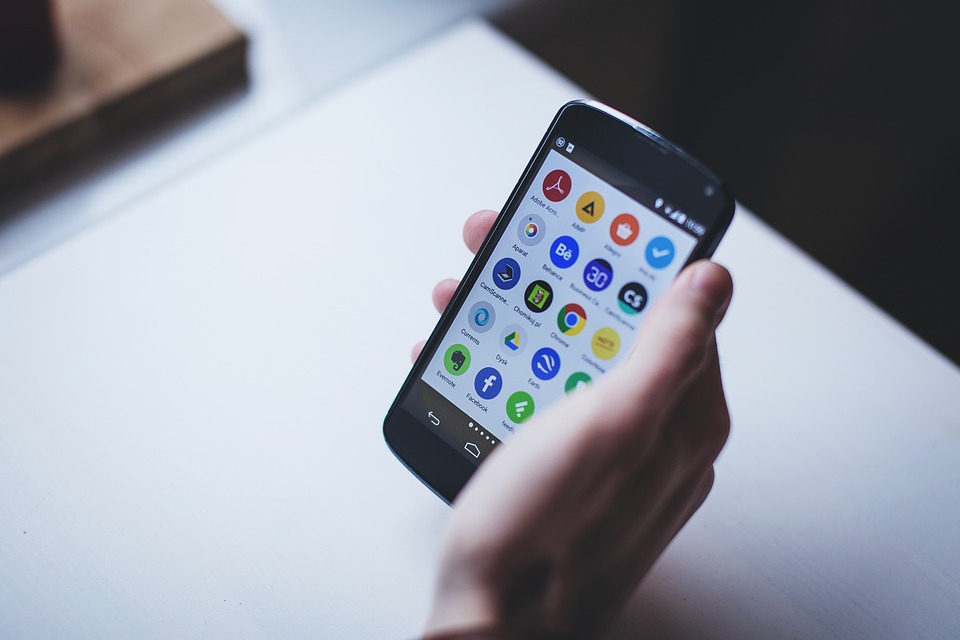Android Beats Out Windows for 1st Time as Most-Used Web OS: Report
The new research from StatCounter shows Android leading Windows only by a tiny margin, but it is an interesting development in tech history.
April 5, 2017

Microsoft Windows still dominates computers on the desktop by a huge margin, but Android is showing its strength by being named in a new global study as the most popular operating system for overall internet use on a wide range of devices.
The new study by independent web analytics firm, StatCounter, found that in March 2017, the Android operating system was used by more people around the world to access the internet than the Microsoft Windows operating system for the first time in history, according to an April 3 announcement. The Windows and Android users accessed the internet using desktop computers, smartphones, tablets, laptops and other mobile devices, the study reports.
When researching internet use globally on devices other than desktop computers, the StatCounter research found that Android captured 37.93 percent of worldwide internet usage, compared to 37.91 percent for Windows. This is a tiny difference which is can be more than made up by statistical error rates, but its mere presence is at least intriguing since it has never happened before, according to StatCounter. Apple's iOS operating system held a 13.09 percent user share in March, while Apple's OS X operating system held a 5.17 percent share. Linux held a 0.75 percent share.
"This is a milestone in technology history and the end of an era," Aodhan Cullen, the CEO of StatCounter, said in a statement. "It marks the end of Microsoft's leadership worldwide of the OS market which it has held since the 1980s. It also represents a major breakthrough for Android which held just 2.4 percent of global internet usage share only five years ago."
At the same time, though, Windows isn't going anywhere soon. The popular desktop operating system from Microsoft is still being used on 84.34 percent of the world's desktop computers, according to the StatCounter's March research. That's not a small market share.
The StatCounter report revealed some interesting usage figures for Windows and Android around the world. In North America Windows (all versions) maintained its lead across all platforms with 39.5 percent share in March, followed by iOS at 25.7 percent and Android at 21.2 percent. In Europe Windows had a 51.7 percent share, compared to 23.6 percent for Android. In Asia, however, Android held a 52.2 market share compared to 29.2 percent for Windows, according to the research.
"Windows won the desktop war but the battlefield moved on," said Cullen. "It will be difficult for Microsoft to make inroads in mobile but the next paradigm shift might give it the opportunity to regain dominance. That could be in Augmented Reality, AI, voice or [Microsoft] Continuum."
Several IT analysts contacted by ITPro.com also saw the research as revealing.
"I'm not surprised at this one bit," Patrick Moorhead, principal analyst at Moor Insights & Strategy, told ITPro.com. "Almost everyone has a smartphone, not everyone with a smartphone has a PC, and most smartphones are Android, so this makes perfect sense."
One thing the latest figures show clearly is Microsoft's missed opportunity in the mobile operating system marketplace, said Moorhead. "Ten years ago this would have meant everything, but the OS is becoming less important and in a way being disintermediated by apps, agents, services, content, APIs and frameworks."
Another analyst, Jan Dawson of Jackdaw Research, said the StatCounter figures show the steady progress Android has made over the last few years.
"Android users have probably outnumbered Windows users for some time now, so although traffic is something of a lagging indicator, it was likely to happen eventually," he said. "In and of itself, this isn't particularly meaningful, because most mobile usage is in apps and not the web, so much of the usage isn't captured here. But Android is clearly a big chunk of overall web usage nonetheless, and mobile collectively even more so, which helps explain why more and more websites are designing for mobile users first or in tandem with designing for desktop users."
All of this, however, doesn't necessarily mean that "people are moving usage directly from Windows to Android – more likely, people are slowly doing tasks they used to do on computers to their smartphones, and Android and iOS are each capturing their share of that usage," said Dawson. "In many cases, people are still using Windows computers, especially while at work, as well as Android smartphones, not directly switching from one to the other."
Read more about:
Alphabet Inc.About the Author
You May Also Like






.jpg?width=700&auto=webp&quality=80&disable=upscale)
